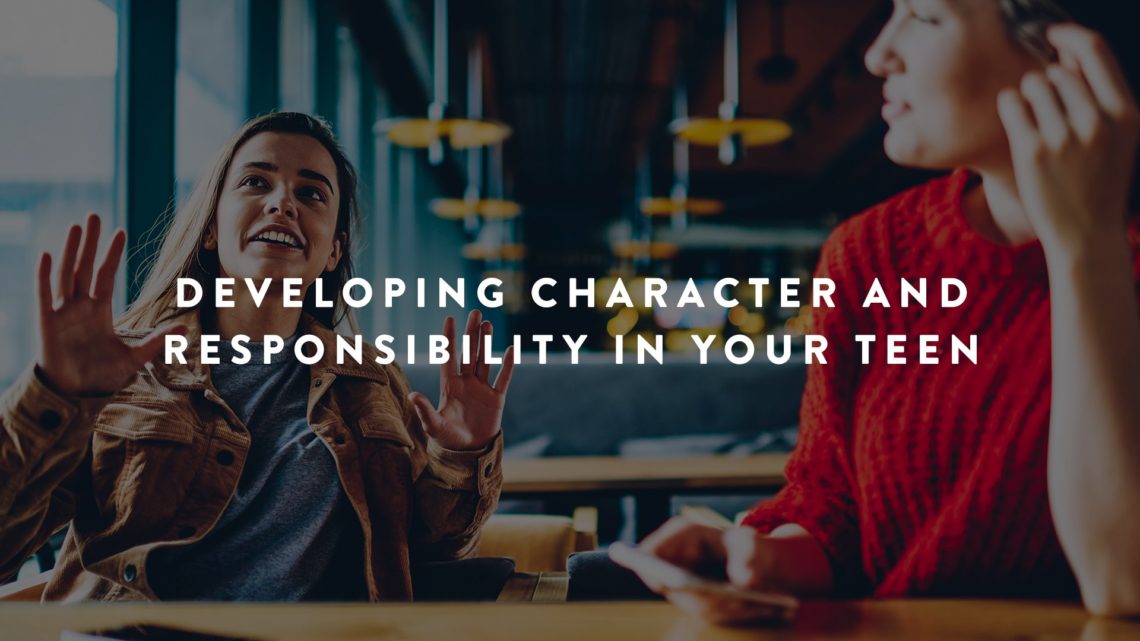
One of the ironies of parenting is that we have to give our kids freedom to fail in order for them to grow up. If you over-parent your teenager, your actions are shouting to her that you don’t believe she can succeed by herself. We must go through the process of releasing control over our teens so they can move toward responsibility. A person who never learns to take full responsibility for their own life and actions will never have the chance to develop healthy character, or to be fully alive, and happy.
4 Steps to Responsibility
Foster Cline, in his excellent book, Parenting Teens with Love and Logic, offers four steps toward teaching your teens to become responsible.
- Step 1: Give your teen responsibility
- Step 2: Trust that your child will carry it out.
- Step 3: When she does blow it, stand back and allow consequences to occur while expressing empathy.
- Step 4: Turn right back around and give her the same responsibility all over again because it sends a powerful implied message: “You’re so smart that you can learn. People do learn from their mistakes and you’re no different.”4
The more parents can offer empathy for their kids’ mistakes the better.
For example, when grades are suffering, the appropriate response is something like this: “I hope you will be able to figure out how to pay the extra money for your car insurance until your good student discount kicks back in when you improve your grades.”
Part of teaching responsibility and character is holding your kids accountable for their actions. That’s why it’s important to express your expectations. The fewer surprises the better. Again, remember that often the most valuable lessons in life come from the consequences of making a mistake. Let reality be the teacher.
Expectations and the Family Contract
In some families a teen will live with clear expectations and consequences but still choose a path of unhealthy rebellion and misbehavior.
If healthy and consistent discipline isn’t working, it’s time to put together a family contract. A family contract involves writing a plan with expectations and consequences for behavior. It is always best to create the contract together with your teen and never in the heat of the battle. When putting together a contract, keep it as simple as possible. Here is a simple outline to follow:
- Issue
- Expectations
- Accountability
- Positive Consequences
- Negative Consequences
These five questions (and sample answers) can help:
- What is the issue? (Lack of discipline with homework.)
- What is a reasonable expectation? (Complete homework in a timely manner.)
- How can we hold you accountable? (Daily homework check- in with one parent at an agreed-upon time.)
- What are the rewards for a job well done? (a sense of accomplishment, feeling good about myself, college preparation, and perhaps buying a new outfit or celebrating with the family at a ball game)
- What are the consequences if you do not meet the expectations? (unable to go to a four-year college right out of high school, poor grades, and costly car insurance as well as immediate consequences, such as no texting or social media until the homework is done, suspended driving privileges, or suspended sports activities).
Parents sometimes need a family contract. Shame-based parenting never works in the long haul. And preaching, criticizing, and yelling are never effective motivators—they will close your child’s spirit toward you. With a contract, however, teens learn to discipline themselves and become more responsible.
The Bottom Line
The bottom line in building character and responsibility is that there is hope. Even if you are in the pit of adolescent hormones, drama, and rebellion, know that most teens do make it through this stage and do just fine. Adolescence is a phase between childhood and adulthood. The truth to hold onto is that teens can be rude, selfish, and rebellious and still become responsible adults that one day you can laugh with about those transition years.
Teens can make poor choices and experiment with poor behavior and still grow up okay. Too many parents are emotional wrecks because they are carrying the weight of their children’s behavior on their back.
No matter how good of a parent you are, your child is quite capable of making poor choices and horrible decisions. Proper discipline does not guarantee proper behavior. However, if you develop and carry out a healthy parenting plan while getting as emotionally, spiritually, and physically healthy as possible yourself, you and your teen will have a much better chance of leading healthy, fulfilling lives.



